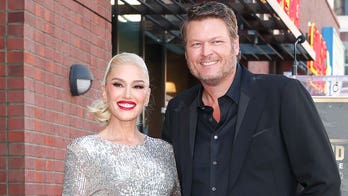Donald Trump on dealing with ObamaCare
Republican nominee sounds off on healthcare policy on 'The O'Reilly Factor'
Donald Trump told Bill O’Reilly last week that NBC releasing his lewd conversation with Billy Bush in 2005 was “certainly illegal” and he may take legal action against the network. If Trump goes after NBC for the tape, does his lawsuit stand a chance?
Recording private conversation in California is a crime unless all parties consent as long as there is a reasonable expectation of privacy during the conversation.
Trump told O’Reilly on Thursday "the microphone was not supposed to be on."
When asked whether or not he would take legal action after the election, Trump hinted he may.
“Well, you’ll see. You’ll see… We’re gonna find out soon enough.”
But Los Angeles attorney Leo Terrell said Trump's lawsuit may not go far if anyone else was present during the conversation.
NBC's Natalie Morales claimed in a special about the tape that other people were on the bus when the conversation took place.
“Anyone can sue…The question is can Trump win a lawsuit against NBC?" Terrell mused. "Trump cannot sue for invasion of privacy because there is no expectation of privacy on a bus. Numerous people were on the bus... Trump would lose an invasion of privacy lawsuit.”
However Trump implied to O’Reilly that he and Bush were alone for the controversial conversation.
“... That was a private locker — you know, that was a private dressing room. Yeah, that was certainly illegal; no question about it.”
Entertainment lawyer Julian Chan said any agreements signed with NBC would be of importance if a lawsuit was filed.
“Even though he was going to film for ‘Access Hollywood’....when he was being taped he was not on the show and was in an off-camera situation where he had a reasonable expectation of privacy. He has a case....but it also depends on what permission agreements he signed with NBC, which I suspect protect them quite well.”
Attorney Reid Breitman believes a lawsuit isn't so far fetched.
"It would be a question of consent. If he was unaware that they were recording that conversation... he would have a good argument that he did not consent to the recording of his conversation. If that is the case, Trump may be entitled to actual and punitive damages.”
The 2005 tape was first revealed by The Washington Post on Oct. 8.







